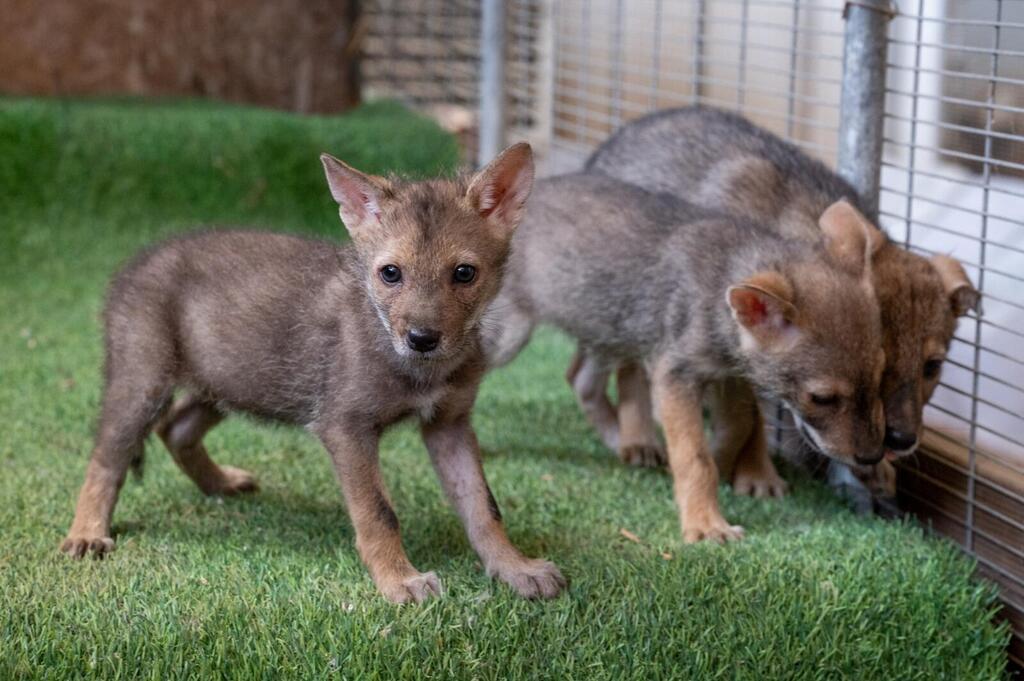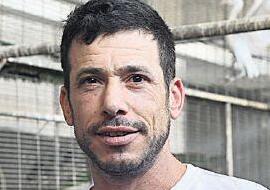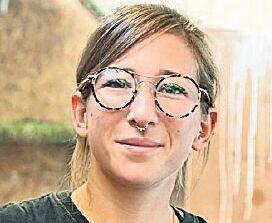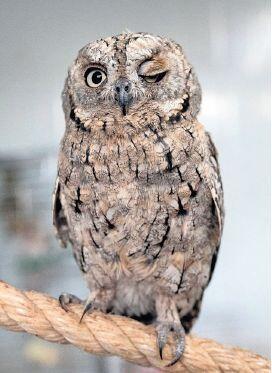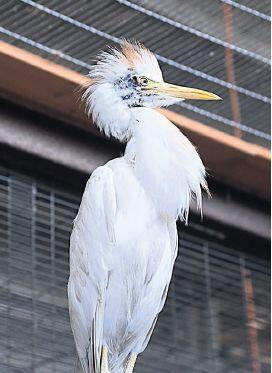Getting your Trinity Audio player ready...
The dangers wild animals in Israel are exposed to range from predators, hunters to mere negligence of humans, which forces them to learn how to survive early on.
In a veterinary clinic in central Israel, animal activists are fighting for the creatures' survival as well, offering first aid, evacuation, emergency treatments, and recovery - all in the hopes of eventually having them return to their natural habitat.
This unique medical institution, which is part of the "For Wildlife" association, was established by Avihu Sherwood. "Animals from all over Israel come to us," he says.
"We're talking thousands every year: mammals, birds, rodents, and reptiles. They are sent to us by the Israel Nature and Parks Authority, veterinarians in local councils, a wildlife hospital, and of course thanks to the alertness and kind-heartedness of private individuals."
The top priority of the clinic is rescuing, caring, and overseeing the recovery of wildlife in distress. Aside from providing tangible thongs such as first aid and emergency medical treatment, the volunteers there also offer lot of heart and soul.
For Wildlife also conducts informative and educational sessions on respecting and persevering wildlife and nature. These activities are made possible through the help of donations and volunteers.
"We are called upon for complex rescues of injured animals," Avihu says. "We will always come, anywhere, in order to offer help."
May Litani, the spouse of his Avihu, says that often times they get sent animals that have been harmed by humans. "For example, turtles that were raised in homes and developed the Rickets disease due to insufficient diets; animals that ate plastic bags left by people; birds that were collected because people thought they had fallen from the nest.
"We can continue to do this only with the public's support through donations, volunteering, or spreading the word," May adds. "This place is essentially the only recovery center in Israel for all types of wildlife in need of help."
Avihu's affinity to animals dates to his childhood. "I really loved animals as a child. But I made all the mistakes possible. For example, I found a chick a raptor and I took it home. It's something that's really forbidden to do, but no one explained this to me," he shared.edures for animals that sustain gun wounds. A lot of jackals caught in foot traps that crush their bones. We amputate their legs and they go back to nature and get along just fine."
Avihu's affinity to animals dates to his childhood. "I really loved animals as a child. But I made all the mistakes possible. For example, I found a chick a raptor and I took it home. It's something that's really forbidden to do, but no one explained this to me," he shares.
"As a teenager, I started to volunteer at a zoo, where they would take care of injured animals way before there was a state hospital. After getting released from the IDF, I traveled all over the world, I was in the jungle for quite some time. There, I learned a lot about nature and the life of wild animals in their natural environment."
In his early adulthood, Avihu worked in the field of production and planning, and would take care of wounded animals he would run into in his spare time.
"Slowly, people started turning to me when they would see injured animals. This hobby became my main occupation. When the cases started numbering in the thousands a year, I realized that I had to institutionalize this because I have no diploma, I'm not a veterinarian. So I founded a non-profit organization and I constantly recruit volunteers, donations, equipment, and of course veterinarians who will perform the medical procedures for free."
During the 2021 Operation Guardian of the Walls, a missile shot from Gaza hit a tree which inhabited heron birds, killing dozens of them. One of them, suffering from shrapnel wounds, was brought to Avihu.
"After several long weeks of treatments the heron managed to survive. Here, come see her in the cage. She is now walking again, she can see again. It's a great miracle."
Wild animals in Israel are often times neglected and no designated entity is assigned to look after them. More so, as urbanization expands, more and more wildlife encounter humans on a regular basis, which puts them at a much higher risk of harm.
"I founded the organization upon understanding that not all animals are treated," Avihu says. "We closely monitor animals that come here until they are able to go back to nature. Very severe cases come to us. For example a pigeon that was run over. Animals that were hit by arrows shot by humans. These are very complex cases. They call for intense and long treatment in order to get them standing on their feet again."
Avihu shared that what makes everything worth while is the moment in which they return the recovered animal back to nature. "It's the greatest satisfaction in the world. We do what no one else does - we fight for every single animal."


